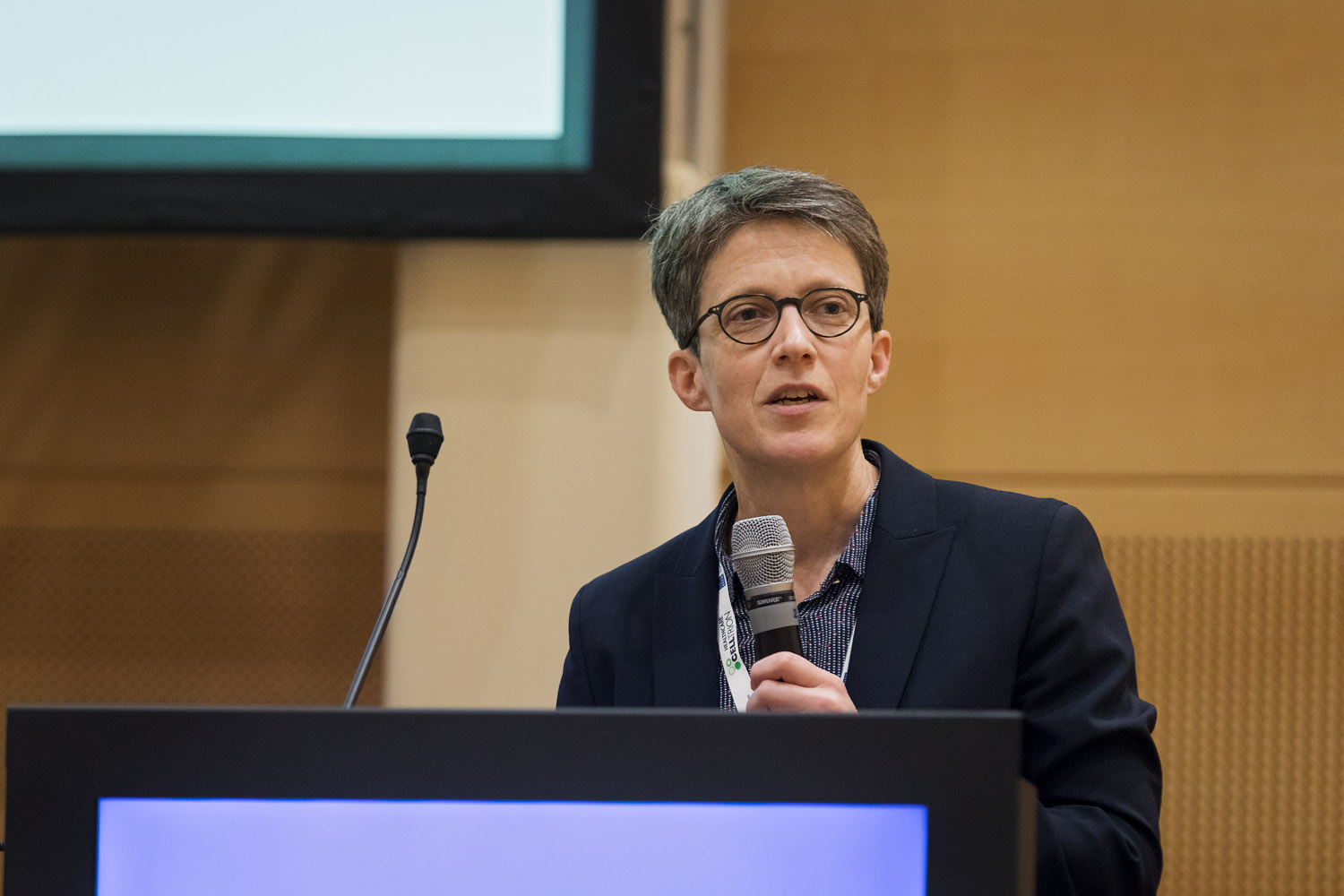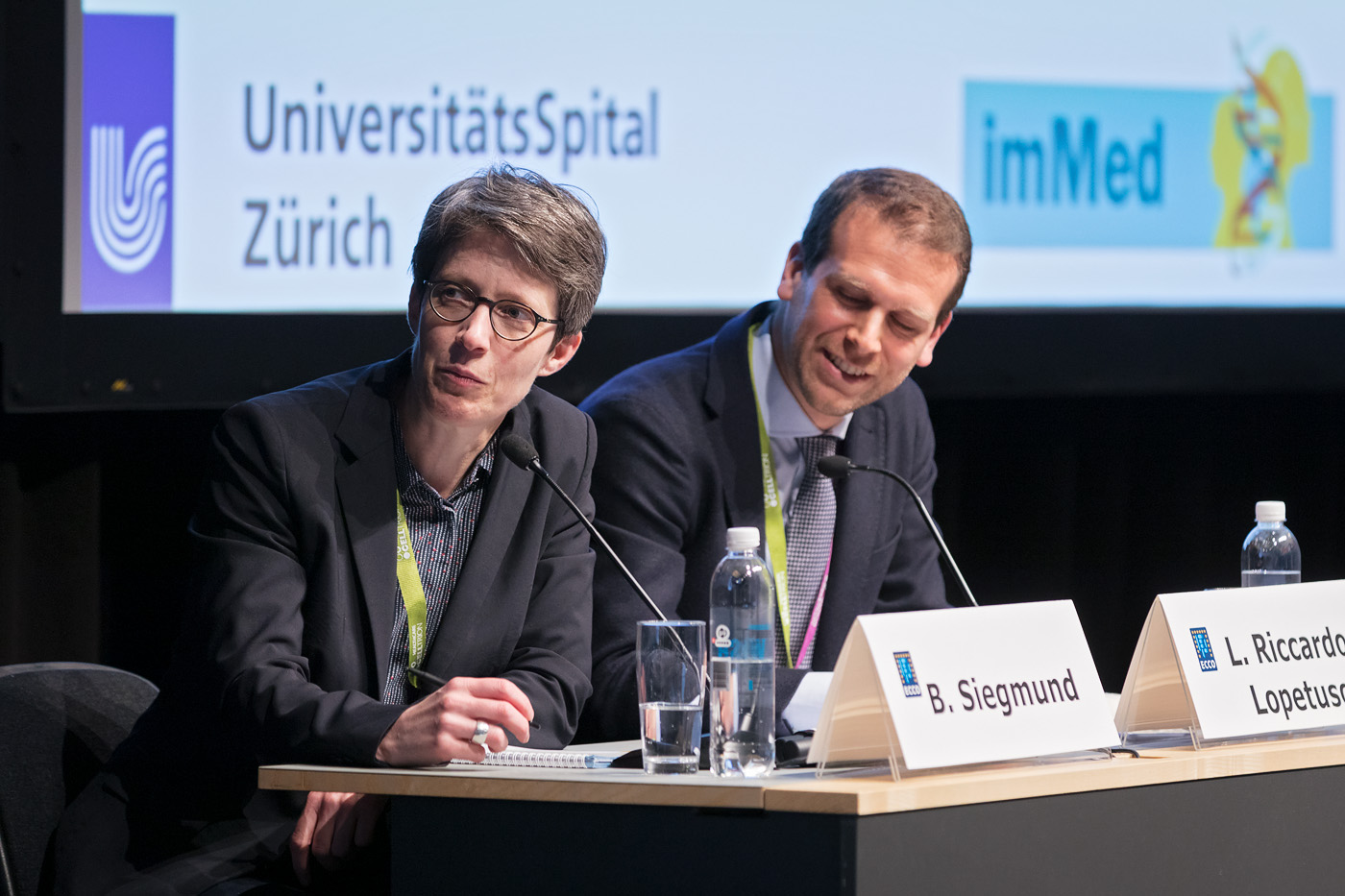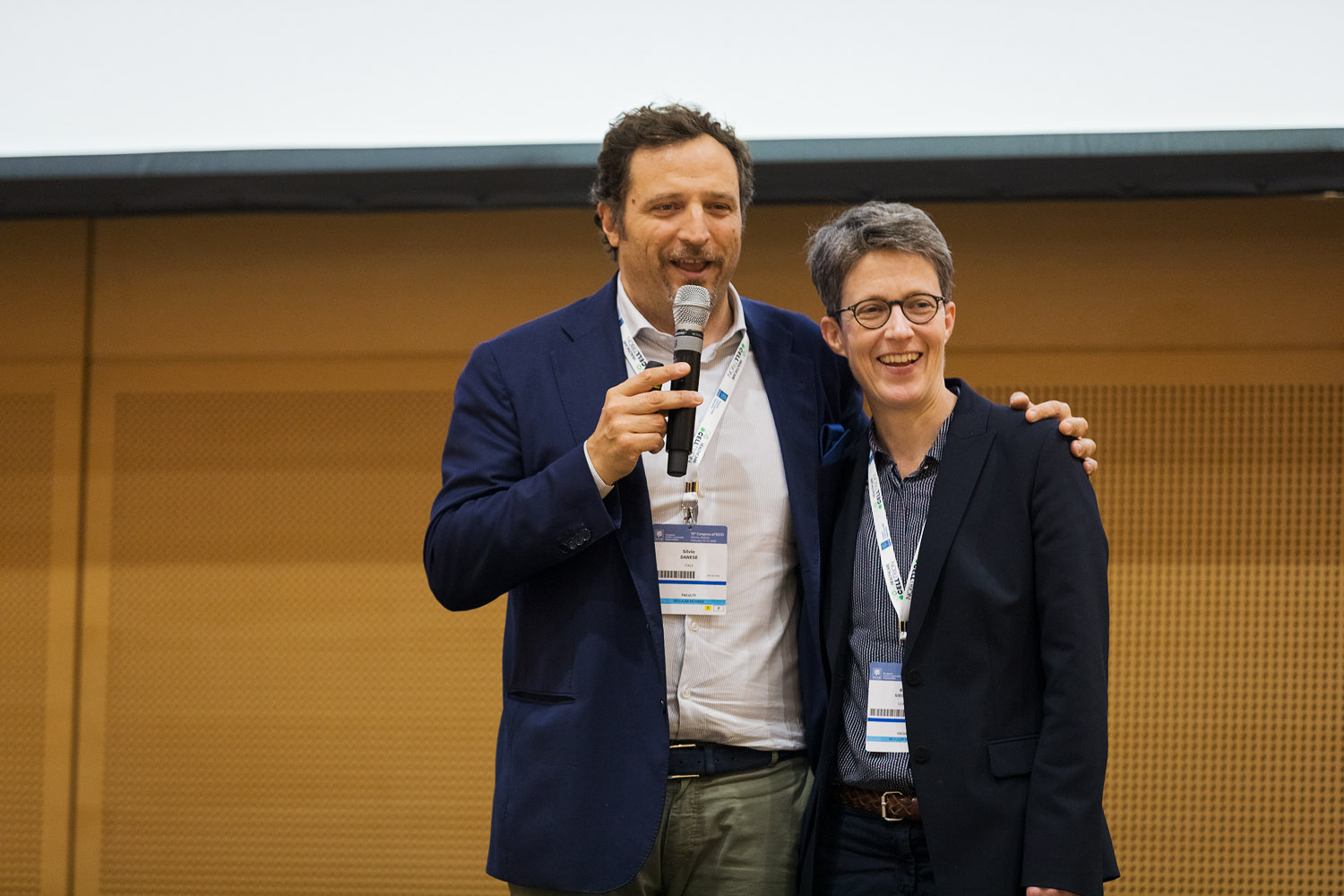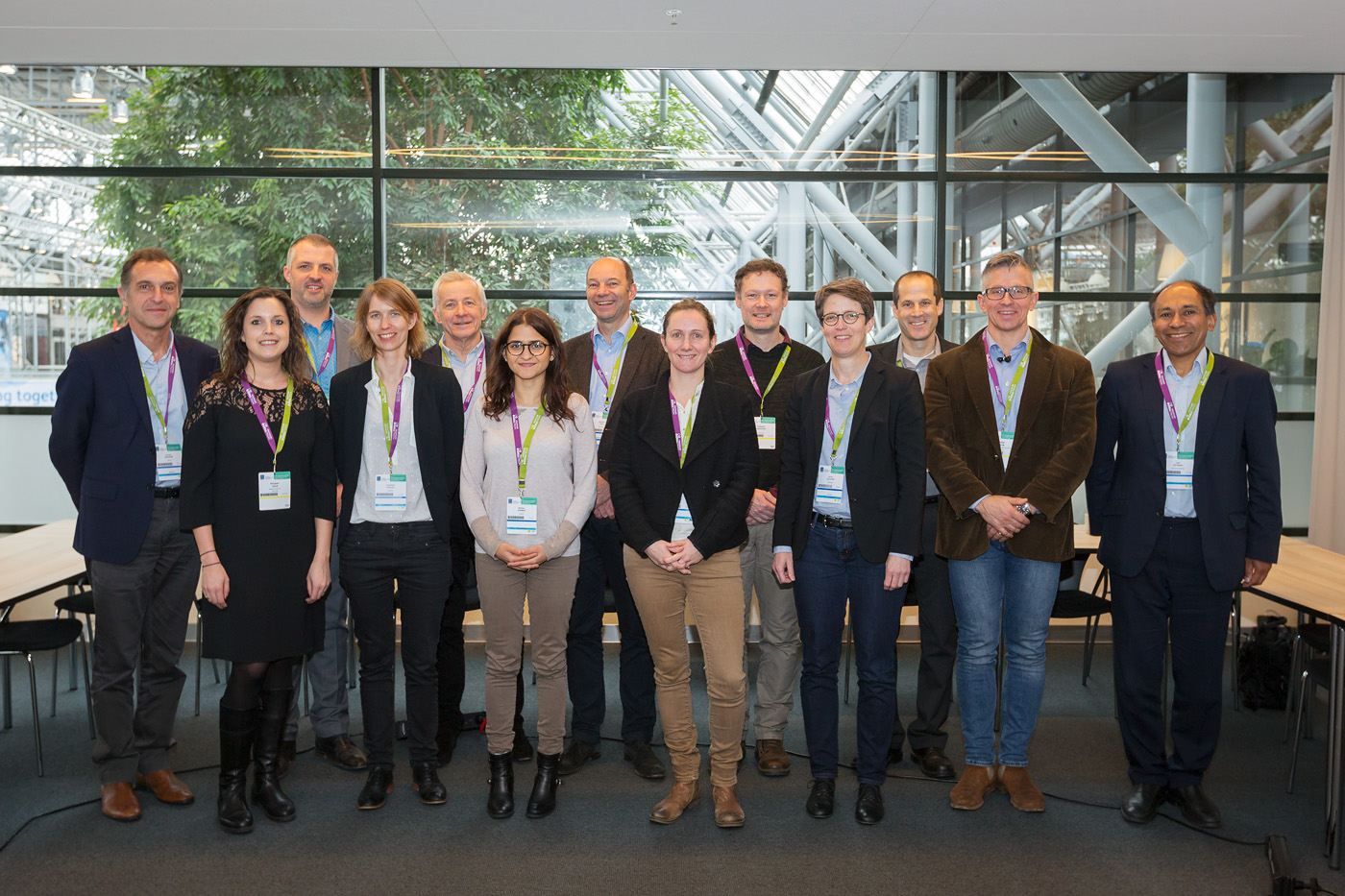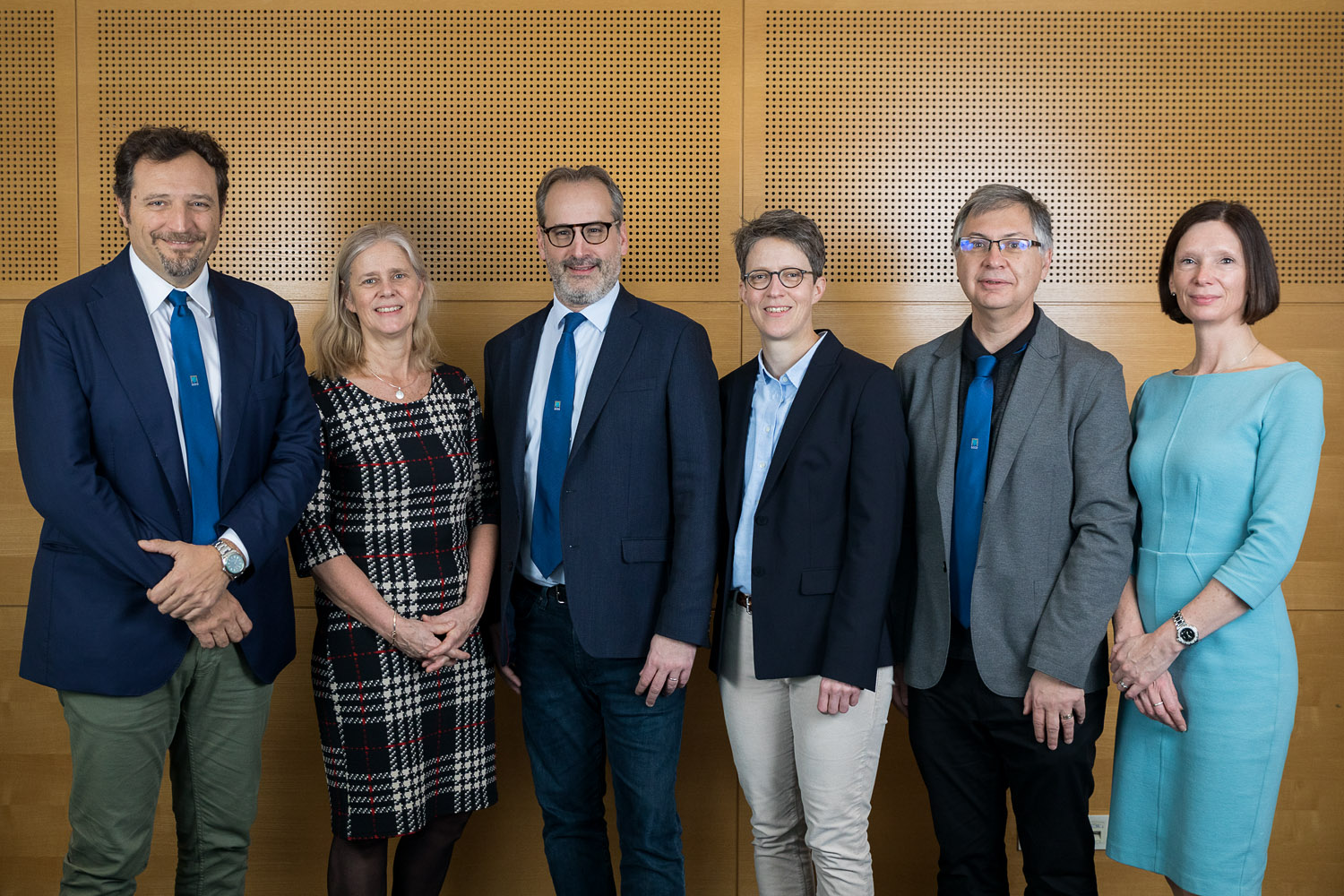Y-ECCO Interview Corner: Britta Siegmund
Charlotte Hedin, Y-ECCO Member
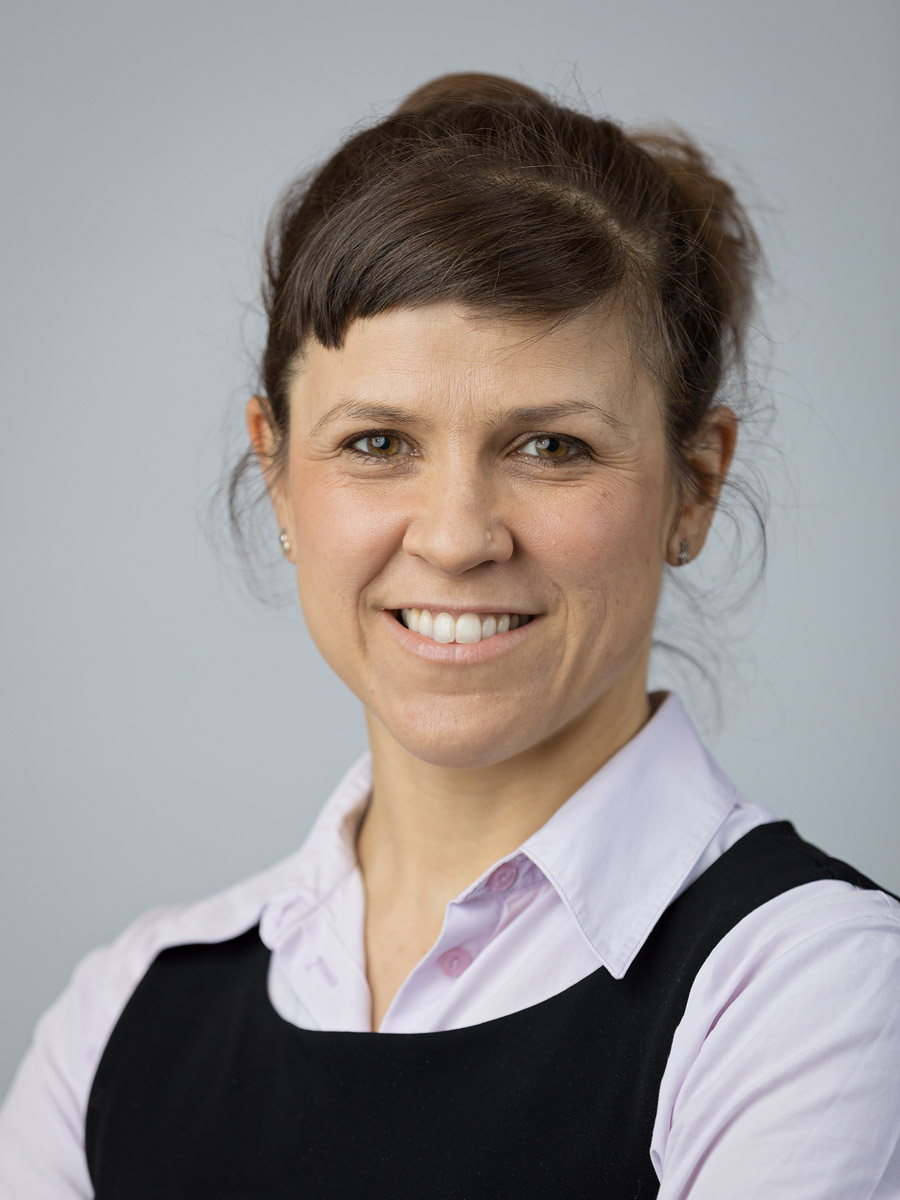 Charlotte Hedin Charlotte Hedin © ECCO |
Britta Siegmund is Medical Director of the Medical Department, Division of Gastroenterology, Infectiology and Rheumatology, Charité – Universitätsmedizin Berlin and holds many other important national and international roles within the scientific and medical communities. She has an extensive publication record in the mucosal immunology of IBD. She is also President-Elect of ECCO.
You are the Medical Director of the Division of Gastroenterology at Charité as well as President-Elect at ECCO. What other roles do you have?
I would say many, but the most significant one at the moment is that I am vice-president of the German Research Foundation. This organisation comprises the president and several vice-presidents who represent the different research areas. I am the representative for medicine. That is actually very interesting because there is a lot of overlap with Charité and even with ECCO with regards to how we support young clinician scientists.
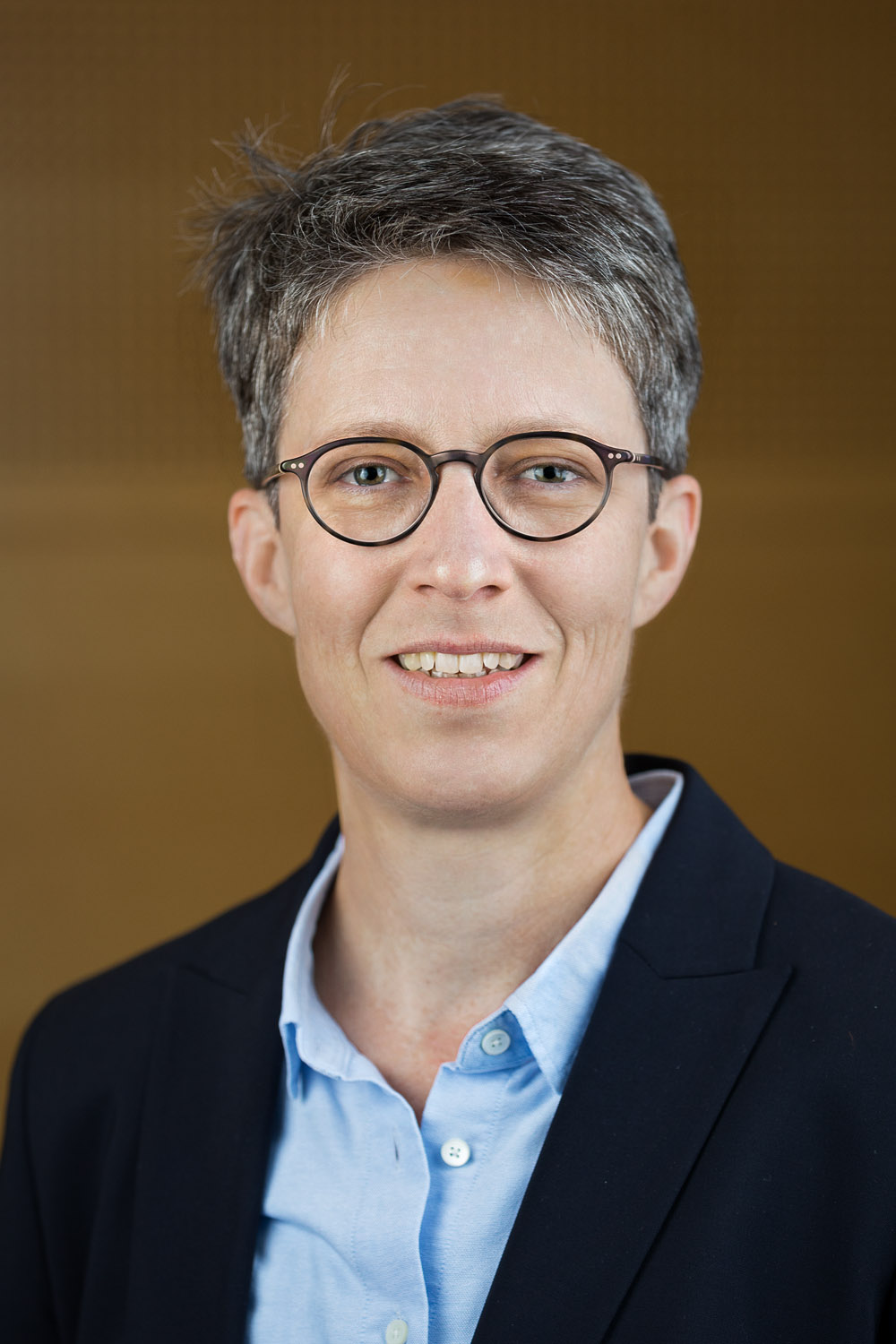 Britta Siegmund © ECCO Britta Siegmund © ECCO |
How do you combine the different roles you have?
I actually never think too much about it. Every role I have gets dedicated time slots and somehow this has worked out so far. However, I have reached a point where I have to say no to some invitations and you have to learn that: You have to learn to say no. But I like it if every day is different – if you have some kind of change rather than going to the office every day and knowing what is going to happen for the next 8–10 hours.
Do you do much clinical work?
I do outpatient clinic twice per week. I do rounds if I am in the hospital every morning and I do endoscopy one day a week, so yes, I do clinical work. I have done much more clinical work during the last half year. I have been in the hospital surprisingly frequently over recent months, mostly because I am not travelling so much.
Do you have much responsibility for direct supervision?
I have a number of PhD students at the moment; however, I also have a post-doc who is leading the lab and who is the day-to-day person they can speak to – without that person on the ground it wouldn’t be realistic.
I also have a couple of residents and GI fellows for whom I am responsible, and I have to guide them through their projects and decide which group within our department they want to associate with. That’s actually rewarding because it is a nice group of people and it is always enjoyable to have a good group. Everyone needs to find their place, whether they like to do endoscopy, or whether they like to do clinical studies or work in the lab, so it is very different from person to person.
Do you have a specific supervision style? What makes a good supervisor?
I don’t know if there is a good rule, but I think it is a good idea if you live and work in the way you like, so your students see how you interact. I think this is a very important point for mentoring – to mentor by example. The second rule is that if I have a project in mind, I will have already thought out what would be step one, step two and so on, and I could express this out loud, but this is not going to help anybody. Instead I try to let the people I supervise develop a project at their own speed. Of course, if you begin to think that the project is not going to progress in a good way then you can begin to ask questions about their plans, but normally I try to encourage them to find their own red line and develop the project, because this is how you become independent at the end of the day.
Many hospitals have had to extensively change their ways of working during the pandemic. But what about research? How has the pandemic affected the research side?
In Berlin the clinical studies were on hold from March until the end of June, which was really difficult. The wet lab was formally shut down over the same time period; nevertheless you were allowed to work if it was COVID-19 related, so many colleagues started working on COVID-19-related research. But for the PhD students it has been a very difficult time, having their projects on hold for this long period. At the beginning we didn’t even know how long it was going to last. Right now, we have been back to more or less normal work in the lab since July. If lab members are writing or analysing data, then they work at home. We try to limit the number of people who are present in the lab – it is not entirely back to normal I would say.
Have you been involved with setting up any COVID-19 projects?
In the first weeks, I was part of the team at Charité restructuring the hospital, and I was looking forward to doing research again because restructuring a hospital isn’t any fun! (Although doctors worldwide have been doing this, so it’s nothing to complain about.) Part of our unit is an experimental imaging unit, so we have started doing staining of the viral protein in many tissues, starting with the brain and the kidney, and we have some preliminary data from duodenal biopsies and the gut. We are doing the analyses, and hopefully we will publish the results soon.
I think we would have had a big chance to do some really interesting trials with regard to COVID-19, because COVID-19 is an inflammatory disease, causing a cytokine storm, but due to the fact that the authorities here need an enormous time to get things approved, by the time more complex studies are approved the situation has changed.
What about industry-sponsored studies? Are you involved with this?
Yes, I have part of our team who is dedicated to this and they restarted in July. For the first six weeks of the shutdown, patients were really hesitant to enter the outpatient clinics. Now, however, we have communicated to everyone that we have social distancing procedures, and everyone is wearing masks so now we have lots of patients and we feel we have to do the work we haven’t done in March and April. The industry studies will be slowed down considerably by the pandemic. The effect of the pandemic on the drug development pipeline will extend beyond the six months we lost because it takes so much time to get a study started and get the recruitment in place.
What is the role of Y-ECCO within ECCO?
I think that Y-ECCO represents a great opportunity to enter the IBD network. It is key that we preserve Y-ECCO within ECCO because it is much easier to connect with younger doctors – doctors who are more advanced are harder to reach, so I think Y-ECCO is a great entry slot. We need to make this attractive so that people who are interested in IBD join Y-ECCO and through that become enthusiastic about IBD. Y-ECCOs should look at all the different groups we have in ECCO. These really illustrate all the areas across IBD. I think this all really helps – when you start getting interested in something there are lots of choices: You could do clinical trials, you could get involved with basic research – and often at the beginning of a career you are not entirely sure which direction to take.
ECCO provides a window into all the different areas and you can explore and decide for yourself what you actually want to do. It works both ways though. I think as ECCO we need Y-ECCOs to tell us what is going on and what the new generation is thinking, which is different from the way more established doctors think. I think it is really important to listen to new ideas and to try to implement them within ECCO. There are reserved seats in many committees and projects for Y-ECCO Members, which is important – we need the Y-ECCO Members on those committees and participating in Congress preparation to provide a platform for a younger generation within ECCO.
You were head of SciCom and a committee member there for several years. What is the role of SciCom in ECCO? Why and how should Y-ECCOs get involved with SciCom?
When you start to think about IBD you think first about clinical trials and patient care and SciCom is the point where we make a key connection into translational or basic science, which at first glance might not seem that important in daily practice. But I think we need to make these links if we want to understand what IBD is and how it works and what drives its development. The role of SciCom is to make this connection to serve as a platform for translational thoughts and projects. SciCom provides a very important connection with the European Mucosal Immunology Working Group and this can bring novel ideas to ECCO.
A key task for SciCom is to design a workshop for the Congress: We focus on one topic each year and we normally have an excellent topic, great speakers and lively discussions. Besides that, SciCom is responsible for grants and grant reviewing, which provides an enormous overview of what is happening in the European IBD Community and even the international IBD Community. Of course, SciCom also contributes greatly to the ECCO Congress programme.
Many Y-ECCOs will be looking to a career as a clinical academic. What’s your advice about combining these two roles?
All over Europe, medicine is under more economic pressure, and it is getting more difficult to combine clinical work and research. Within Charité we have developed a clinician scientist programme which provides individuals with a period during their residency when they have three years half time in clinical work and half time in research and importantly, this counts full time for their clinical training. This was unique when it started and is now a blueprint for Germany. I think we need models like this to facilitate people in pursuing research. But it is a question of time. You need time to do research. It can’t just be done in the evenings after work; it’s not possible, and not something we really want.
Other than that, you need the right environment: You need to feel that where you’re working it’s OK to ask scientific questions and that other people are asking them as well. You need a good mentor, who guides you even through difficult times, and you need money of course. Lastly, and here ECCO has a great role to play, you need a network, preferably an international network. If you have a question that you would like to answer, it is an advantage to have the opportunity to approach people internationally with whom you can collaborate on that question, and that is something ECCO can provide.
What will next year’s ECCO Congress be like?
For obvious reasons, we had a long discussion and our decision has been published. We decided to postpone the ECCO Congress (only in 2021) to July for several reasons. We hope that this will allow us to have a physical meeting, but we are all aware of the possible necessity to keep online solutions in the back of our minds. Considering that we have participants from all over the world coming to the Congress, travel restrictions will have a big impact, but we hope to have a physical meeting at least in part. Next year is the 20th anniversary of ECCO. We definitely need a celebration – we can’t ignore the 20th birthday. Holding the ECCO Congress during the summer in Copenhagen will make this feasible. I am very hopeful we will have some kind of party.
How much of the content will be COVID-19 based?
Along the same lines, we cannot ignore COVID-19, since it is currently dominating our daily lives. Still, the regular IBD studies and work are continuing and need to be valued. I am confident, that we will find the right balance.
What does ECCO mean to you?
I have been involved with ECCO for 11–12 years. I started as a National Representative and then later joined SciCom. ECCO is an interesting group of people, many of whom have become friends over time. I think that having that joint interest which we really care about builds strong networks. Everybody has learnt the value of face-to-face meetings over the last few months and everybody will be very happy to meet again, outside of Zoom or Skype. It is a clear strength of ECCO that we have this wonderful network of people who generate projects together. ECCO also has a sense of fun – there is the ECCO Film and the ECCO Hearts and Minds, where the senior members are sometimes not afraid to make fools of themselves. I think this gives a personal touch, it is important to show that of course. It is a serious disease, we take it seriously and look for novel approaches; nevertheless, at the same time we try to have an enjoyable network that really likes to come together.
One might think that the ECCO Film is trivial, but it also serves a purpose as it contributes a quite different feel within the organisation. These light-hearted moments break down barriers and allow people to be approachable, regardless of where they are in the organisation, and also perhaps give a feeling for the fact that ECCO is open to creativity and that you can say stuff that perhaps isn’t the norm. In comparison, other organisations which are more straight-laced can be less personal. For the health of the organisation it is important that even senior people can be approached by younger people.
How do you manage the work-life balance? Do you have any advice for young IBD-ologists as to how to maintain a healthy balance?
When I start my day, I don’t really think of it as work. I like what I am doing. People ask me how did I plan my career? But I never planned my career – I always did what I like to do. Of course, there are always days when you get up and feel you don’t want to work. We probably all also work more than we need to, but I think we also need free space to see the family, play sports or whatever: It is important to have this free time or mental space, because afterwards it is easier to think in a creative way. If you’re always thinking about work, you lose the capability of having creative thoughts or coming up with new ideas. The balance is different for every person, but it is important for all to find the right balance.
At times I am successful in this, and at other times I am less successful. I am very bad at avoiding checking my email. I think I managed one holiday where I did not open my inbox. When I came back from holiday and opened up my email it was so frustrating that there were so many unanswered mails there. So, I have decided that it makes for an easier post-vacation period to perhaps take 20 minutes once a day while on holiday to get rid of the junk and prioritise what is important. This way it is much easier and less stressful to get back into work after the holiday period. Everybody needs to define this balance for themselves.
What’s in the future?
For ECCO, as for any other society, we need to have game-changing thoughts about what is going to happen next year. But in reality, no one knows. Anything we predict now will probably not come true. But it is a big challenge to keep ECCO working through this pandemic. I think at this point we are doing a reasonable job, but we need to restart the committee meetings in some format as soon as possible.
For me personally, there are many things that can happen in the coming years and I am always open to new projects!
Charlotte Hedin, Y-ECCO Member
Please contact the ECCO Office This email address is being protected from spambots. You need JavaScript enabled to view it. for any interview suggestions and interact with Y-ECCO on twitter @Y_ECCO_IBD.
